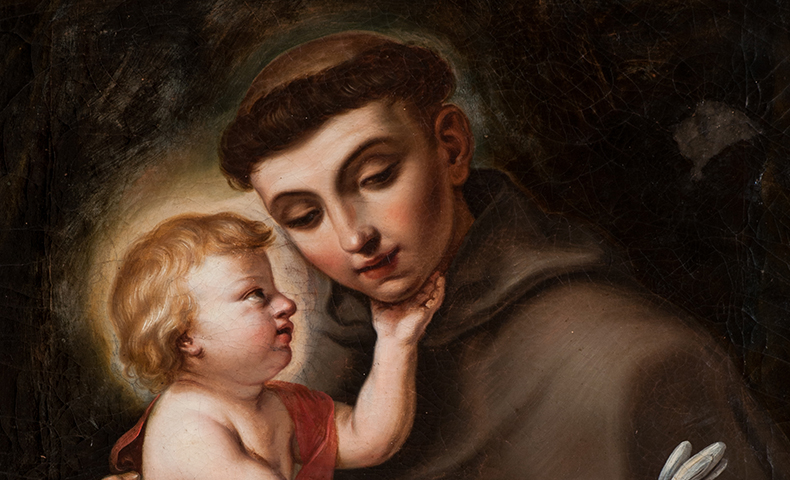Saint Anthony of Padua, Saint of the day for June 13th

(1195-13 June 1231)
The history of Sant'Antonio di Padova
The call of the Gospel to leave everything and follow Christ was the rule of the life of Saint Anthony of Padua. Again and again, God called him to something new in his plan. Whenever Anthony responded with renewed zeal and sacrifice to serve his Lord Jesus more fully.
His journey as a servant of God began when he was very young when he decided to join the Augustinians in Lisbon, giving up a future of wealth and power to be a servant of God. Later, when the bodies of the first Franciscan martyrs crossed the Portuguese city where he was stationed, he was again filled with an intense desire to be one of those closest to Jesus himself: those who die for the Good News.
Then Anthony entered the Franciscan Order and left to preach to the Moors. But an illness prevented him from reaching this goal. He went to Italy and was stationed in a small hermitage where he spent most of his time praying, reading the scriptures, and performing humble tasks.
God's call again came to an ordination in which no one was willing to speak. Humble and obedient Anthony hesitantly accepted the assignment. The years of Jesus' search for prayer, the reading of Sacred Scripture and service in poverty, chastity and obedience had prepared Antonio to allow the Spirit to use his talents. Anthony's sermon was staggering for those who expected an unprepared speech and did not know the power of the Spirit to give words to people.
Recognized as a great man of prayer and a great scholar of scriptures and theology, Antonio became the first friar to teach theology to other friars. He was soon called from that place to preach to the Albanians in France, using his profound knowledge of Scripture and theology to convert and reassure those who had been deceived by their denial of the divinity of Christ and the sacraments.
After leading the friars in northern Italy for three years, he established his headquarters in the city of Padua. He resumed his preaching and began writing notes for sermons to help other preachers. In the spring of 1231 Anthony retired to a convent in Camposampiero where he built a kind of tree house as a hermitage. There he prayed and prepared for death.
On 13 June he fell seriously ill and asked to be brought back to Padua, where he died after receiving the last sacraments. Anthony was canonized less than a year later and appointed doctor of the Church in 1946.
Reflection
Antonio should be the patron of those who find their lives completely eradicated and placed in a new and unexpected direction. Like all saints, it is a perfect example of how to completely transform one's life in Christ. God did with Antonio as God liked - and what God liked was a life of spiritual power and brilliance that still attracts admiration today. The one whom popular devotion has designated as a seeker of lost objects has found himself completely lost by the providence of God.